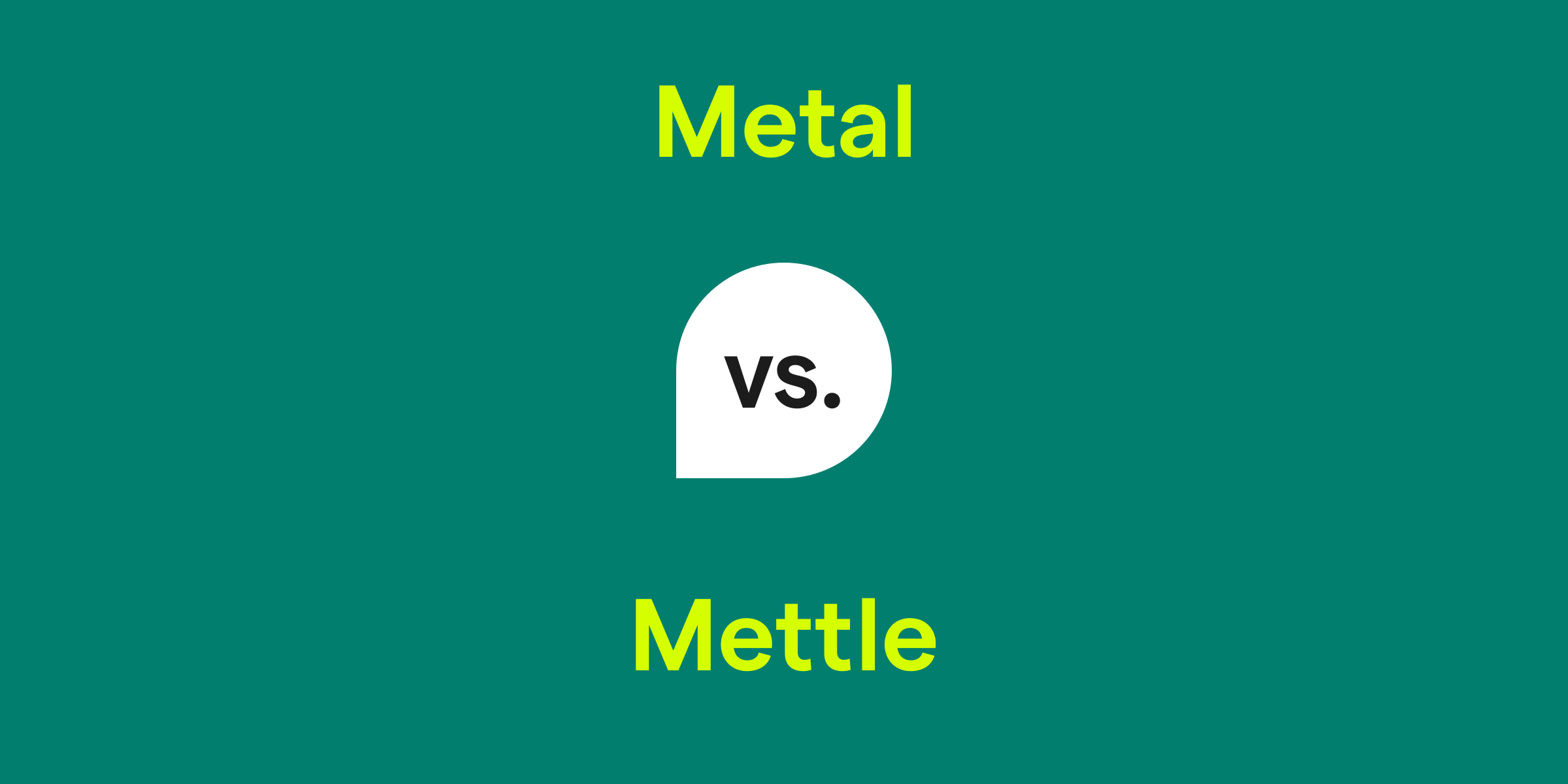Metal vs. Mettle: What's the Difference?
Metal refers to a solid material typically hard, shiny, malleable, fusible, and ductile, with good electrical and thermal conductivity such as iron or aluminum. It's used in engineering, construction, and as materials for various objects. Mettle, on the other hand, is a quality of character; it indicates courage, endurance, and fortitude. It is often used to describe a person's ability to cope well with difficulties or to face a demanding situation in a spirited and resilient way.

How do you use the word metal in a sentence?
The word metal is used in association with elements and substances known for their conductive, malleable, and often reflective properties. Common in science, industry, and construction, metal is a term encompassing a wide range of materials used to make everything from electronics to buildings. In a sentence, metal usually refers to the material itself or its characteristic qualities.
Examples of metal in a sentence
- The bridge is reinforced with steel, one of the strongest metals known to engineers.
- Gold and silver are precious metals that have been used as currency for thousands of years.
- They used a powerful electromagnet to separate metals from other materials in the recycling plant.
How do you use the word mettle in a sentence?
Mettle is used to commend someone's spirit and courage, especially in challenging situations. This term is often applied figuratively to describe a person's resilience or character when they face adversity or are tested in some way. Unlike metal, mettle is exclusively related to personal character traits and has no material aspect.
Examples of mettle in a sentence
- The marathon runner showed her true mettle by finishing the race despite her injury.
- In the face of crisis, the team's mettle was tested, and they rose to the challenge admirably.
- He proved his mettle during the negotiation, remaining calm and persuasive throughout.
Metal and mettle definition, parts of speech, and pronunciation
Metal definition:
Metal is defined as a class of chemical elements, such as iron, gold, and aluminum, that have a characteristic luster, are good conductors of heat and electricity, and are opaque, fusible, and generally malleable.
Metal parts of speech:
Metal pronunciation:
Metal is pronounced as /ˈmetl/.
Mettle definition:
Mettle is defined as the ability to cope well with difficulties or to face a demanding situation in a spirited and resilient way; it is courage and fortitude.
Mettle parts of speech:
Mettle pronunciation:
Mettle is pronounced as /ˈmetl/, the same as metal.
Metal is defined as a class of chemical elements, such as iron, gold, and aluminum, that have a characteristic luster, are good conductors of heat and electricity, and are opaque, fusible, and generally malleable.
Metal parts of speech:
- As a noun: The bridge was reinforced with strong metals to ensure its longevity.
- As an adjective (metallic): The metal finish on the car gives it a futuristic look.
Metal pronunciation:
Metal is pronounced as /ˈmetl/.
Mettle definition:
Mettle is defined as the ability to cope well with difficulties or to face a demanding situation in a spirited and resilient way; it is courage and fortitude.
Mettle parts of speech:
- As a noun: The young soldier's mettle was put to the test during the training exercise.
- As a noun (rare, archaic): His mettle shone through his actions, revealing his noble character.
Mettle pronunciation:
Mettle is pronounced as /ˈmetl/, the same as metal.
Metal vs. mettle in a nutshell
To summarize, metal and mettle are homophones with distinct meanings and uses. Metal refers to elements and materials known for their conductive and malleable properties used in manufacturing and construction. Mettle pertains to human character, specifically the courage and strength revealed when a person faces adversity. Recognizing the context in which to use each word is key: metal for materials, mettle for character.
Get AI Writing Assistance Wherever You Type
Make sure your vocabulary is on point and every punctuation mark is in the right place, no matter where you’re working. Grammarly works across more than 1 million websites and apps so you can improve your writing without copying, pasting, or breaking focus.

More Commonly Confused Words
Interest piqued? Pore (not pour) over other commonly confused words to help your writing reach peak (not peek) performance.